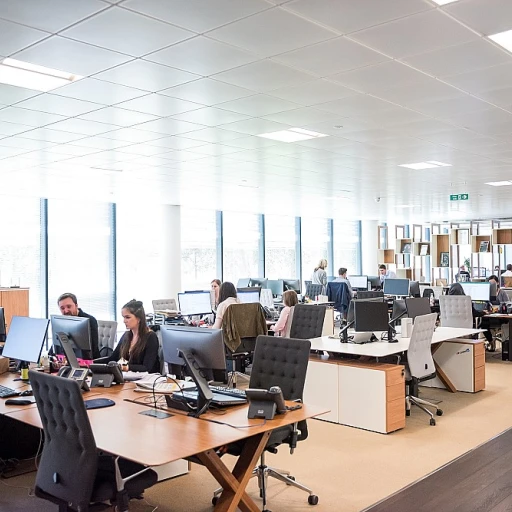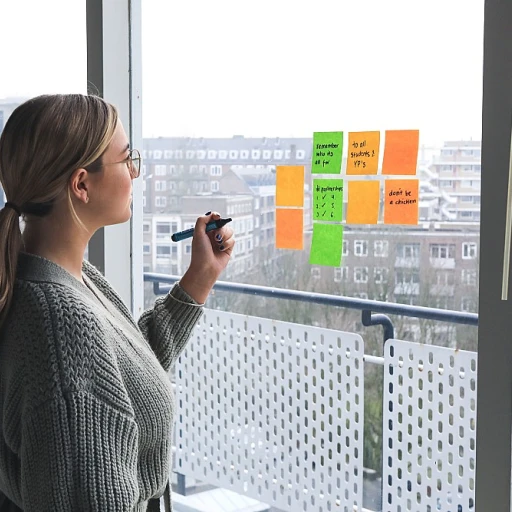The Role of Pre-Screening Interviews
Importance of Initial Evaluation
The secret to a successful hiring process often lies in effective pre-screening interviews. These interviews serve as the initial evaluation stage, where hiring managers aim to align the company's needs with the candidate's skills and experience. Pre-screening is critical because it allows hiring teams to filter out candidates who might not be the right fit for the position or the company culture. This not only saves time but also ensures that only the top talent progresses to the subsequent stages of the interview process.
In these early stages, the focus typically revolves around understanding the candidate's skills, experience, and salary expectations. For instance, questions might be tailored to evaluate whether the candidate's previous work experience aligns with the role’s requirements. These preliminary discussions can also touch upon the candidate's fit for the company culture and work environment, ensuring a harmonious match between both parties.
By conducting thorough initial evaluations, companies can significantly enhance the candidate experience, streamlining the path to finding a good fit for the role. For in-depth insights, exploring
essential questions to ask a recruiter during a phone screen can further refine the pre-screening process.
Key Components of a Pre-Screening Interview
Essential Elements of Effective Screening Interviews
Pre-screening interviews serve as a critical component in the hiring process by offering a preliminary assessment of candidates. They're designed to determine whether a candidate possesses the necessary qualifications and could potentially be a good fit for the role and company culture before moving to further stages of the hiring process.
Effective pre-screening interviews typically consist of several key components:
- Identifying Relevant Skills and Experience: The primary aim is to assess whether the candidate's skills and professional background align with the job requirements. This often involves discussing their past work experiences and how these experiences relate to the current role.
- Evaluating Candidate Fit: Hiring managers frequently use screening questions to gauge if a candidate will fit within the company's culture and work environment. Understanding how a candidate views teamwork, company values, and their adaptability is crucial at this stage.
- Clarifying Role Expectations: Candidates are informed about the role's responsibilities, salary expectations, and the company's core values, providing clarity on what pre considerations are necessary for both parties.
- Assessing Communication Skills: Communication is key in any role, and the ability to articulate thoughts clearly is often evaluated through pre screening discussions.
In the context of identifying top talent, knowing what pre-screening interview questions to pose and why is essential. Effective screening interviews set the stage for subsequent interactions, ensuring that both the candidates and hiring managers are aligned in terms of fit and expectations right from the onset.
For more insights into optimizing recruitment strategies, you might explore further insights on the
role of recruitment firms, which play a pivotal role in aligning candidates and company needs.
Trends in Pre-Screening Techniques
Emerging Techniques in Pre-Screening Interviews
The landscape of pre-screening interviews is evolving, accommodating new methodologies that swiftly assess candidates' qualifications, cultural fit, and potential contributions to a company. As companies continuously seek efficient ways to identify top talent, technological advancements and nuanced screening strategies have become more prevalent.
One significant trend is the integration of artificial intelligence (AI) in the screening process. AI tools can analyze resumes, video interviews, and responses to screening questions, providing hiring managers with insights into a candidate's skills and experience more quickly than traditional methods. This technology not only saves time, but also brings consistency in evaluating all candidates.
In addition to AI, many companies are incorporating structured interview questions, which are designed to evaluate specific competencies related to the role. This method ensures that interviewers ask consistent questions, leading to a fairer evaluation of all potential hires. Example questions might focus on job-specific skills or assess how candidates are likely to handle challenges within the company culture or work environment.
Virtual pre-screening is also gaining traction. With the increased acceptance of remote work, conducting virtual interviews allows companies to cast a wider net, attracting candidates from different geographic locations. It also offers candidates the flexibility to interview from their preferred environment, which may result in a more authentic portrayal of their fit for the role.
Moreover, pre-screening interviews now emphasize understanding candidates' salary expectations and their views on the work-life balance offered by the employer. This aligns with the broader hiring objective: finding individuals who are not only capable of fulfilling the job role but also harmoniously integrating into the company's ecosystem. Learn more about
background check trends in this context.
Impact of Background Checks on Pre-Screening
Examining the Influence of Background Verification on Initial Interviews
In the hiring process, background checks have become a crucial step that precedes job interviews. This thorough examination ensures a foolproof method for identifying the most qualified and trustworthy individuals. As companies seek top talent who will fit well with the team, it becomes imperative to understand how the process of background checks impacts pre-screening interviews.
Background checks typically delve into a candidate's past work experience, role history, education credentials, and any potential red flags. By performing these checks early in the hiring process, employers can confidently move potential candidates to the interview stage, ensuring that those who participate in screening interviews have already been vetted to some extent.
Enhancing the Screening Interview Process
For hiring managers, incorporating background check results into the screening questions provides a more comprehensive understanding of a candidate’s suitability for a position. This allows interviewers to tailor example questions that delve deeper into a candidate’s ability to fit into the company culture. Moreover, understanding an applicant’s skills and past roles can lead to more focused and insightful discussion during interviews.
Paving the Way for a Better Candidate Experience
From the candidate’s perspective, knowing that their background has been partially assessed before entering the screening process can alleviate some anxiety. It also sets expectations for salary discussions and the work environment they might be entering into. Companies that clearly communicate the role that background checks play in the pre-screening stage can enhance the overall candidate experience, leading to a smoother interview process.
In conclusion, the integration of background checks early in the hiring process can significantly streamline and influence pre-screening job interviews, ensuring that only the most suitable candidates proceed further in the hiring journey.
Challenges in Pre-Screening Interviews
Overcoming Obstacles in Pre-Screening Interviews
Pre-screening interviews are an essential stage in the hiring process, allowing companies to gauge candidates' suitability for a role through an initial evaluation. However, despite their benefits, this method comes with its challenges.
One primary challenge is aligning the pre-screening phase with the company's overall hiring objectives. Often, companies aim to assess a candidate's fit for the job role and the company culture simultaneously, which can be difficult to accomplish through standard screening questions. This process requires careful consideration of the interview questions to effectively target the desired skills and experiences.
Another challenge is ensuring consistency across all interviews to maintain a fair assessment of each candidate. Hiring managers need to be well-prepared with example questions and understand what information they are trying to extract from candidates to eliminate biases. Variability in the screening interview process can lead to discrepancies in how each candidate is evaluated.
Moreover, time constraints can significantly impact pre-screening interviews. Both candidates and hiring managers often face tight schedules, making it crucial to extract useful insights without compromising on the quality and depth of the interview. Balancing this need can often lead to conflict between gathering sufficient information and respecting the candidate's time constraints.
Last but not least, integrating background checks into the pre-screening phase presents its own set of challenges. While these checks provide a comprehensive view of a candidate's past work experience and other essential factors, they can make the overall hiring process longer and more complex. Companies must strike a balance between efficiency and thoroughness to ensure they recruit top talent without unnecessary delays.
In the face of these challenges, companies are continuously evolving their screening techniques, as mentioned in previous sections. Finding efficient ways to improve the candidate experience while achieving accurate assessments is key to overcoming these obstacles.
Future of Pre-Screening Interviews
Embracing Technological Advancements
As companies evolve, so do their processes for initiating pre-screening job interviews. An increasing reliance on technology is evident, as AI and machine learning revolutionize how interviews are conducted. Hiring managers now utilize these tools to analyze candidate data swiftly, identifying top talent more efficiently. This tech integration helps streamline the screening interview, ensuring that candidates with the right skills and qualifications are shortlisted rapidly.
Integrating Flexibility in the Process
Demand for a flexible screening interview process continues to grow. Remote interviewing via video calls is becoming standard practice, allowing candidates to engage in interviews irrespective of geographical constraints. This not only broadens the search for potential hires but also enhances the candidate experience by accommodating their schedules and locations.
Enhanced Focus on Skills and Culture Alignment
As companies prioritize a strong company culture, a greater emphasis is placed on evaluating whether candidates are a good fit for the work environment. Questions aimed at understanding candidate soft skills and cultural alignment are becoming more prevalent. These screening questions are crafted strategically to predict how well an individual will fit within the company’s cultural framework, ensuring long-term compatibility.
Data-Driven Decisions
The future of pre-screening interviews is geared towards harnessing data to make informed decisions. Through comprehensive data analytics, companies gain insights into which screening techniques yield the highest success rates, thereby refining their pre-interview strategies. This data-driven approach aids in optimizing the hiring process, reducing bias, and focusing on merit-based evaluations.
Personalization as a Key Component
With an increasing awareness of the necessity for a personalized approach, there is a shift towards tailoring interview questions and methods to each unique candidate. This personalization ensures that candidates feel valued and respected, ultimately leading to a more engaged and motivated workforce. The nuances of candidate background, experience, and skills are taken into account to make the interview process more meaningful and effective.
The future of pre-screening interviews lies in a blend of technology and personalization, where automated processes meet human intuition to enhance the hiring journey. By adopting these emerging trends, companies can refine their interview process, secure top talent, and foster a thriving work environment.














